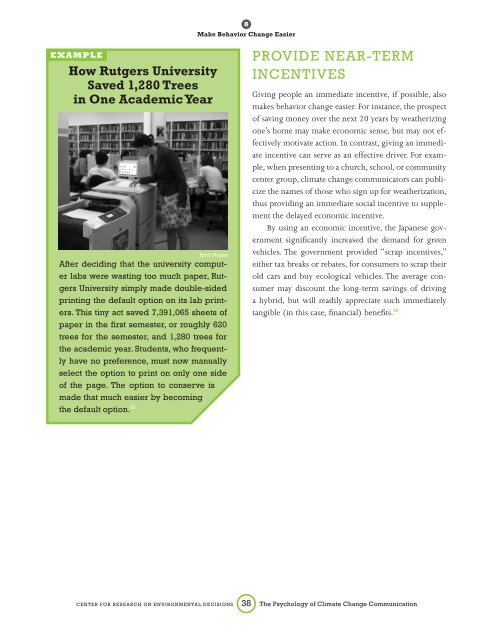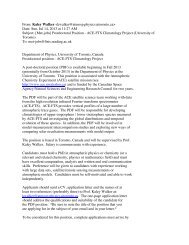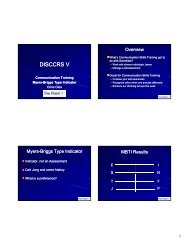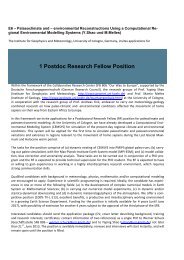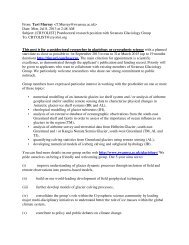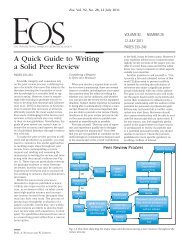CRED Guide PDF - The Psychology of Climate Change ...
CRED Guide PDF - The Psychology of Climate Change ...
CRED Guide PDF - The Psychology of Climate Change ...
You also want an ePaper? Increase the reach of your titles
YUMPU automatically turns print PDFs into web optimized ePapers that Google loves.
8<br />
Make Behavior <strong>Change</strong> Easier<br />
Example<br />
How Rutgers University<br />
Saved 1,280 Trees<br />
in One Academic Year<br />
Erich Nagler<br />
After deciding that the university computer<br />
labs were wasting too much paper, Rutgers<br />
University simply made double-sided<br />
printing the default option on its lab printers.<br />
This tiny act saved 7,391,065 sheets <strong>of</strong><br />
paper in the first semester, or roughly 620<br />
trees for the semester, and 1,280 trees for<br />
the academic year. Students, who frequently<br />
have no preference, must now manually<br />
select the option to print on only one side<br />
<strong>of</strong> the page. <strong>The</strong> option to conserve is<br />
made that much easier by becoming<br />
the default option. 67<br />
Provide Near-Term<br />
Incentives<br />
Giving people an immediate incentive, if possible, also<br />
makes behavior change easier. For instance, the prospect<br />
<strong>of</strong> saving money over the next 20 years by weatherizing<br />
one’s home may make economic sense, but may not effectively<br />
motivate action. In contrast, giving an immediate<br />
incentive can serve as an effective driver. For example,<br />
when presenting to a church, school, or community<br />
center group, climate change communicators can publicize<br />
the names <strong>of</strong> those who sign up for weatherization,<br />
thus providing an immediate social incentive to supplement<br />
the delayed economic incentive.<br />
By using an economic incentive, the Japanese government<br />
significantly increased the demand for green<br />
vehicles. <strong>The</strong> government provided “scrap incentives,”<br />
either tax breaks or rebates, for consumers to scrap their<br />
old cars and buy ecological vehicles. <strong>The</strong> average consumer<br />
may discount the long-term savings <strong>of</strong> driving<br />
a hybrid, but will readily appreciate such immediately<br />
tangible (in this case, financial) benefits. 68<br />
Center for Research on Environmental Decisions 38 <strong>The</strong> <strong>Psychology</strong> <strong>of</strong> <strong>Climate</strong> <strong>Change</strong> Communication


